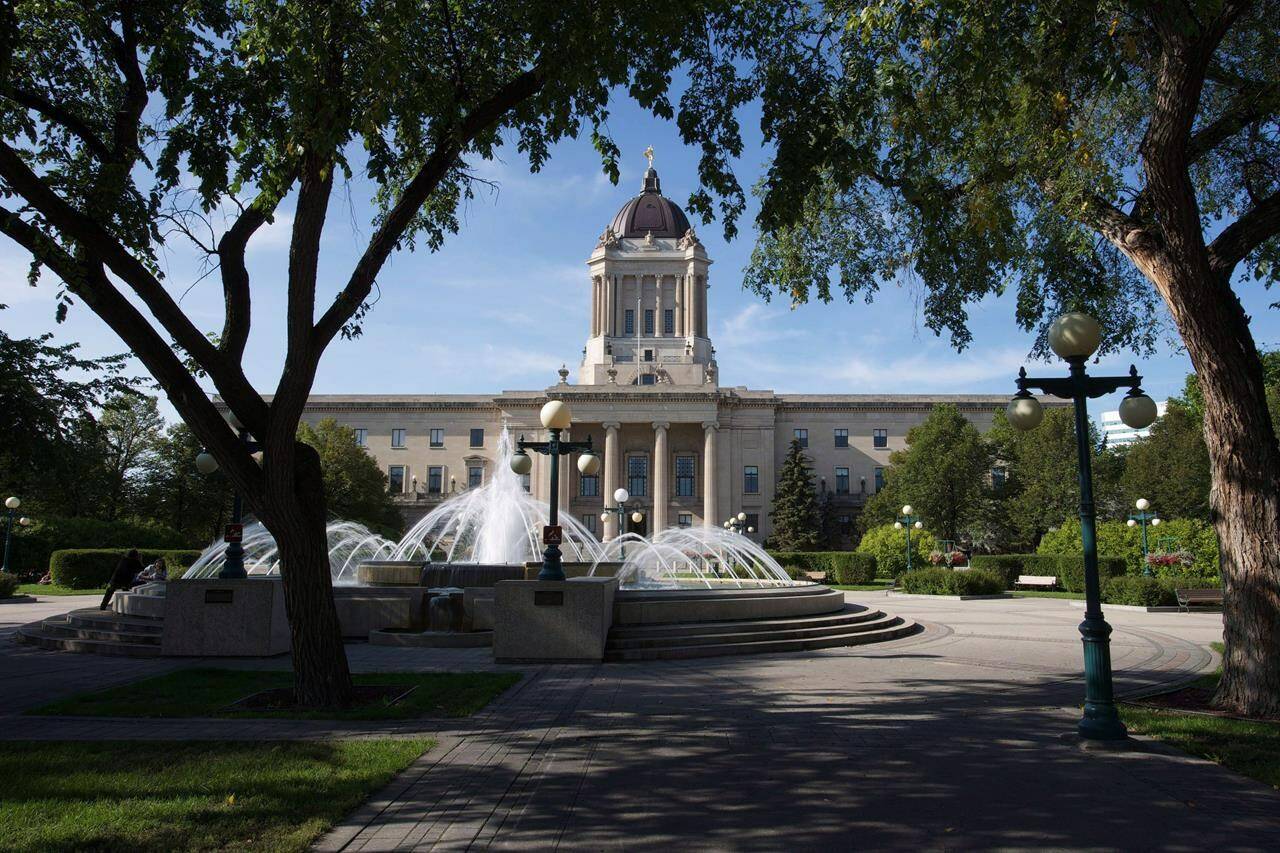Logan Oxenham is celebrating a number of firsts this month.
He was elected for the first time to Manitoba’s legislature with the New Democrats in the Oct. 3 election.
The 46-year-old’s win has also been called historic, as he’s believed to be the first openly transgender person elected at the provincial level in Manitoba, and possibly in Canada.
He was also just measured for his first fitted suit.
“I feel honoured,” Oxenham said in a recent interview about his election win.
“I feel that I have an opportunity now to really amplify voices that have traditionally not been heard in places such as the legislative building,”
Transgender and gender-diverse people have long been under-represented in political office at all levels of government.
Jamie Lee Hamilton was the first transgender person to seek public office in Canada, when she unsuccessfully ran for Vancouver city council in 1996.
Since then, a small group of transgender men and women and non-binary individuals have put their names on ballots. An even smaller number have been elected.
Julie Lemieux, a transgender woman, became the first openly transgender person elected as a mayor in Canada in 2017, when she became leader of the small village of Très-Saint-Redempteur, Que.
LGBTQ advocates say while there has been a push for governments to be more representative of the communities they serve, prejudicial and discriminatory policies and rhetoric have made it more difficult, and in some cases unsafe, for transgender people to take on more public roles.
“It takes tremendous courage and resilience to have to go through that barrage of hate and to make yourself so publicly vulnerable to simply run for political office,” said Kristopher Wells, Canada Research Chair for the public understanding of sexual and gender minority youth.
“In many cases, you have to turn the other cheek and try to persevere and rise above much of that blatant prejudice and discrimination.”
The New Brunswick and Saskatchewan governments recently moved to require children under 16 to have parental consent to change their names or pronouns at school.
They have argued they’re defending the rights of parents, while critics say the policies trample on the rights of vulnerable youth. Several rallies have taken place across the country with demonstrators on both sides.
Oxenham said it has been agonizing to watch youth being targeted for who they are.
“Trans youth are such brilliant and resilient folks who get up every morning to go to school and try to live in this society that’s telling them that they can’t exist or they shouldn’t.”
Oxenham first ran in the 2022 byelection for the Winnipeg riding of Kirkfield Park. He lost to Progressive Conservative Kevin Klein.
He credits months of hard work and “knocking on thousands of doors” for his win this time around, adding residents he spoke with expressed disgust over the tone of the Progressive Conservatives’ campaign.
The Tories campaigned on stronger “parental rights” in schools, but did not elaborate on what that meant.
Oxenham said he’s ready to advocate for transgender youth as an MLA.
“Their voices are the least heard throughout this time of regressive policies, but we should really be listening to the youth for guidance on these things,” he said.
Helen Kennedy, executive director of the national LGBTQ organization Egale Canada, said it’s important to have transgender and gender-diverse people in political spheres, because it breaks down stereotypes that lead to discrimination.
“It’s so important for the conversation that they can have at the table in terms of policy development and issues around health care and education,” she said. “Those lived experiences are invaluable.”
Kennedy said it’s been exciting to watch LGBTQ people put their names forward in Manitoba politics.
Uzoma Asagwara, who is non-binary, was re-elected for a second term with the NDP. Transgender candidates Shandi Strong and Trevor Kirczenow ran unsuccessfully for the Liberals.
Strong has known Oxenham for many years. She said she hopes he’ll be able to make a difference in his new position.
“Our voices must continue to be heard to correct the misinformation campaigns and return us to the path of progress,” she said in an email.
Before being elected, Oxenham spent 12 years as a juvenile correctional officer and a youth counsellor.
Oxenham said he wants to use his first-hand knowledge of working in justice and of navigating the health-care system as a transgender man to bring changes to these systems.
Mateo Llanillos is hopeful Oxenham’s win will do that.
When he transitioned about 15 years ago, Llanillos said he had to find out about health care through word of mouth.
“Yes, Logan is trans, but he also has an insight in terms of what health care looks like. Not just from a trans perspective, but as a person.”
Llanillos said he hopes transgender people who are considering to run for office will take note of Oxenham’s achievement and know there is also a place for them at the table.
“Sometimes we do have to have pioneers like Logan to get our foot through the door.”
READ ALSO: Debate over pronouns pits parental rights against children’s, experts say

